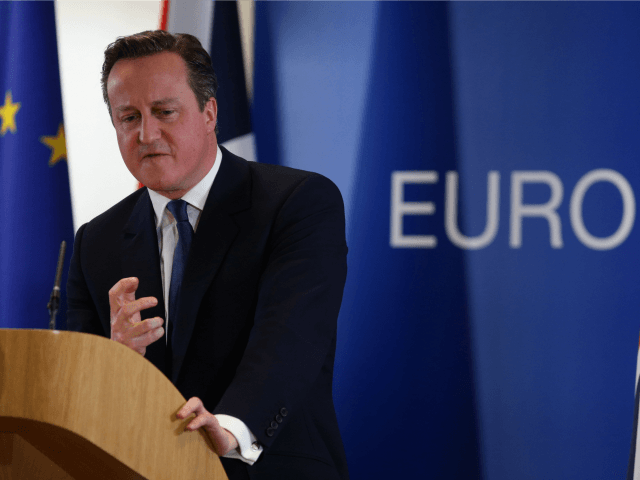British Prime Minister David Cameron successfully wrangled a reform deal from his European partners, but fears are now rife that other EU countries will now claim the “special status”, further fracturing Europe.
Cameron won key reform demands at a make-or-break summit on Britain’s future in the bloc, drawing criticism from France that he may have opened the way to a “self service” European Union.
Britain, in the EU since 1973, already has opt-outs from major policy pillars, including the obligation to join the euro single currency or the passport free Schengen zone.
But Cameron said he needed yet more changes to win a referendum, set for June 23, when the British people will be asked to either leave or remain in the bloc.
Unwilling to take on yet more problems, the EU’s 28 leaders — already shaken by the worst refugee crisis in its history — acquiesced after 30 hours of talks.
– ‘Solo efforts’ –
“This victory comes at a heavy cost as long as the unravelling of Europe by referendum blackmail remains so easy,” Socialist MEP’s from France warned after the deal.
In his biggest achievement, Cameron won limits to the EU’s sacrosanct free movement of workers, with new migrants from Europe heading to Britain barred from benefits for seven years.
But European Commission head Jean-Claude Juncker said that the EU’s “fundamental values” remained intact and that Cameron, a man he has clashed with, did not “deepen cracks in our Union”.
“We have agreed that… national solo efforts are not advisable,” Juncker said.
But quickly it emerged that the opposite was true with richer EU countries, most vocally Denmark but also Ireland, insisting that a new restriction on child benefits for migrants should also apply EU-wide.
“For me it’s really been a fight to make sure that it would also apply to Denmark, so I’m quite pleased with that,” said Denmark’s liberal Prime Minister Lars Lokke Rasmussen.
Even Europe’s most powerful leader, Germany’s Angela Merkel, backed Cameron’s reforms ahead of the talks calling them “justified and understandable” to all Europeans.
The right-leaning Welt am Sonntag wrote: “Other rich countries, particularly Germany, will profit from the rules allowing the UK to curb welfare tourism.”
But French President Francois Hollande warned against a fraying of Europe: “there can be differences, but Europe cannot become a self-service.”
Belgian Prime Minister Charles Michel, a dyed-in-the-wool European federalist, said that while Britain and the EU were stronger together, “it wouldn’t come at the cost of certain fundamental values.”
– ‘Turning point’-
The biggest concern to leaders however remains the victory of Brexit, which explained the willingness of the 28 to grant Cameron almost all the changes he asked for.
“Outside the UK, Brexit would inflame already growing populist movements,” a new report compiled for the World Economic Forum said.
“A Brexit would be a turning point in EU integration, which has, so far, been seen as largely irreversible,” it added.
Across Europe, the example of Britain has already been celebrated by the far right.
“What I have been proposing for the past four years, Great Britain has done it,” said Marine Le Pen, head of France’s National Front.
This is the “beginning of the end of the EU,” she added.
Matteo Renzi, Italy’s often irascible socialist Prime Minister, regretted that a certain idea of Europe was under threat.
“The risk is to lose the original dream of Europe,” he said, urging for a serious discussion about preserving the union.

COMMENTS
Please let us know if you're having issues with commenting.